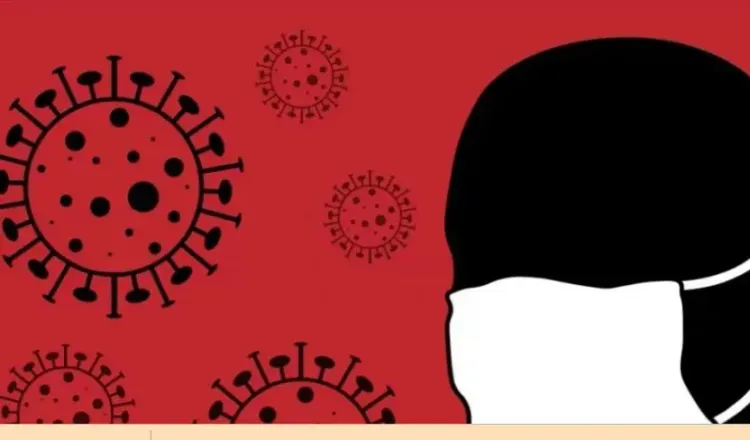Study Reveals SARS-CoV-2 Virus Persists in Skull and Brain Meninges for Years Post-Infection

New Delhi, Nov 30 (NationPress) SARS-CoV-2, the virus responsible for the Covid-19 pandemic, is found to persist in the skull and meninges for years following infection, indicating a long-term impact on the brain, as per a significant study conducted in Germany.
Researchers from Helmholtz Munich and Ludwig-Maximilians-Universität (LMU) discovered that the spike protein of SARS-CoV-2 remains present in the protective layers of the brain—namely the meninges—and in the bone marrow of the skull for as long as four years after the initial infection.
These spike proteins are implicated in inducing chronic inflammation in those affected, thereby increasing the likelihood of developing neurodegenerative conditions, according to the research team.
Prof. Ali Ertürk, Director at the Institute for Intelligent Biotechnologies at Helmholtz Munich, mentioned that the long-term neurological repercussions might include accelerated brain aging, potentially resulting in a decline of five to ten years in healthy brain function for those impacted.
The findings, published in the journal Cell Host & Microbe, may also explain neurological symptoms associated with long Covid, such as headaches, sleep disturbances, and cognitive impairments often referred to as “brain fog.”
Approximately five to ten percent of individuals who contract Covid are expected to experience long Covid—this translates to around 400 million people who might retain a significant quantity of the spike protein.
Interestingly, vaccines developed against this lethal virus significantly diminish the accumulation of the spike protein in the brain, according to the researchers.
Nevertheless, the reduction observed was “only around 50 percent in mice, leaving residual spike protein that continues to pose a toxic risk to the brain”.
For this study, the team devised an innovative AI-driven imaging technique to investigate how the SARS-CoV-2 spike protein influences the brain.
This technique provides a three-dimensional visualization of viral proteins and was utilized to uncover previously undetectable distributions of spike protein in tissue samples from Covid-19 patients and mice.
The results indicated significantly increased concentrations of spike protein in the skull's bone marrow and meninges, persisting even years after the infection.
The spike protein binds to ACE2 receptors, which are particularly prevalent in these regions.










